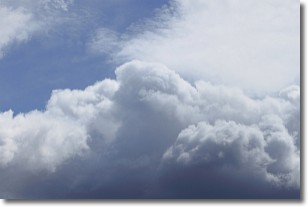Weather Alert in North Carolina
High Surf Advisory issued August 21 at 12:03PM EDT until August 23 at 12:00AM EDT by NWS Newport/Morehead City NC
AREAS AFFECTED: East Carteret
DESCRIPTION: * WHAT...For the Coastal Flood Warning, minor to moderate soundside inundation with water level rises of up to 2 to 3 feet. High tide will be around 8:30 pm this evening, when water levels will be at their highest. For the High Surf Advisory, large breaking waves of 8 to 12 feet in the surf zone. For the Beach Hazards Statement, dangerous rip currents. * WHERE...East Carteret County. * WHEN...For the Coastal Flood Warning, until 2 AM EDT Friday. For the High Surf Advisory, until midnight EDT Friday night. For the Beach Hazards Statement, through this evening. * IMPACTS...Up to 2 to 3 feet of inundation above ground level is possible in some areas near shorelines and tidal waterways resulting in an elevated threat of property damage. Flooding will extend inland from the waterfront threatening some homes and businesses. Numerous road closures and flooding of vehicles will be possible. * ADDITIONAL DETAILS...A storm surge warning remains in effect for the oceanside north of Cape Lookout. Moderate to major beach damage is likely, resulting in a significant threat to life and property. Large dangerous waves will likely inundate and destroy protective dune structures.
INSTRUCTION: Take the necessary actions to protect flood-prone property. If travel is required, do not drive around barricades or through water of unknown depth. Inexperienced swimmers should remain out of the water due to dangerous surf conditions. Life-threatening rip currents. If caught in a rip current, remain calm. Swim in a direction following the shoreline. If tired, float or tread water until out of the rip current. If unable to escape, face the shore and call or wave for help.
Want more detail? Get the Complete 7 Day and Night Detailed Forecast!
Current U.S. National Radar--Current
The Current National Weather Radar is shown below with a UTC Time (subtract 5 hours from UTC to get Eastern Time).

National Weather Forecast--Current
The Current National Weather Forecast and National Weather Map are shown below.

National Weather Forecast for Tomorrow
Tomorrow National Weather Forecast and Tomorrow National Weather Map are show below.

North America Water Vapor (Moisture)
This map shows recent moisture content over North America. Bright and colored areas show high moisture (ie, clouds); brown indicates very little moisture present; black indicates no moisture.

Weather Topic: What are Nimbostratus Clouds?
Home - Education - Cloud Types - Nimbostratus Clouds
 Next Topic: Precipitation
Next Topic: Precipitation
A nimbostratus cloud is similar to a stratus cloud in its formless,
smooth appearance. However, a nimbostratus cloud is darker than a stratus cloud,
because it is thicker.
Unlike a stratus cloud, a nimbostratus cloud typically brings with it the threat
of moderate to heavy precipitation. In some cases, the precipitation may evaporate
before reaching the ground, a phenomenon known as virga.
Next Topic: Precipitation
Weather Topic: What is Rain?
Home - Education - Precipitation - Rain
 Next Topic: Shelf Clouds
Next Topic: Shelf Clouds
Precipitation in the form of water droplets is called rain.
Rain generally has a tendency to fall with less intensity over a greater period
of time, and when rainfall is more severe it is usually less sustained.
Rain is the most common form of precipitation and happens with greater frequency
depending on the season and regional influences. Cities have been shown to have
an observable effect on rainfall, due to an effect called the urban heat island.
Compared to upwind, monthly rainfall between twenty and forty miles downwind of
cities is 30% greater.
Next Topic: Shelf Clouds
Current conditions powered by WeatherAPI.com




